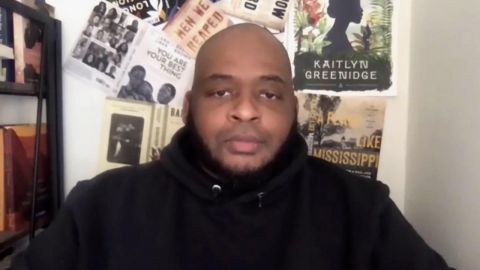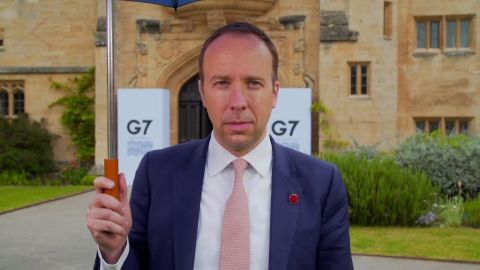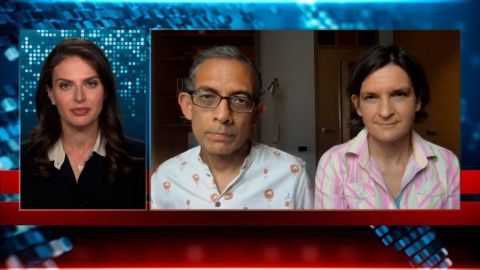Read Transcript EXPAND
ESTHER DUFLO, NOBEL PRIZE-WINNING ECONOMIST: Well, right now, it’s 80 million doses, and there are two billion people to vaccinate this year and four billion next year, and almost seven billion in the entire world. So, this is the beginning. And we need to go much faster than that, if possible.
GOLODRYGA: And, Abhijit, obviously, this isn’t just the U.S. that needs to step up. We know health ministers from the G7 are meeting in Oxford today and tomorrow. What should be the top priority for them as they are meeting and discussing this?
ABHIJIT BANERJEE, NOBEL PRIZE-WINNING ECONOMIST: I think getting that $50 billion or maybe $60 billion that’s needed to putting it together and assuring manufacturers that the money is there, so that they start producing. I think sharing the stockpiles is a good idea, but it’s not going to get us there. We really need expanded manufacturing. And for that, we need money on the line.
GOLODRYGA: And how much money are we talking about? We know that $2.4 billion was raised for COVAX in recent days and weeks. Is that enough? And how much more do we need?
DUFLO: So, the — according to the IMF, we would need about $50 billion to vaccinate — to vaccinate up to six — up to four billion people in the next couple of years. Even if you consider that this is an underestimate, needs to be a little bit bigger, we have to give out $50 billion or $60 billion, that’s much less than COVAX has received. But that is — sorry — much more than what COVAX has received. But that is much, much, much less than what we have spent to bolster our own economies, for example, during the crisis.
GOLODRYGA: And much of that slowdown or the pause, at least, was due to the spread in India, right, where a lot of these vaccines are manufactured. We’re starting to see the death toll slowly decline there. Things are still in very dire shape, and 3,000 deaths a day reported, and it’s reported to be much worse than that. Just 3 percent of India’s 1.4 billion population is vaccinated. We know that New Delhi’s now opening up its economy. And this is a delicate balance, right, because closing the economy has a huge impact on a country that size. And, obviously, having a pandemic spread wildly through the country has huge ripple effects and consequences as well. How do you walk that balance? And what should the government be doing right now?
BANERJEE: The government of India? The government of U.S.? I guess the government — I mean, the government of India, it’s — I think what it’s doing that’s right this time is calling the — sort of the next wave. I think they are very explicit that the third wave will happen.
About This Episode EXPAND
Health ministers from the wealthiest countries are meeting today in Oxford to address vaccine inequality.
LEARN MORE



